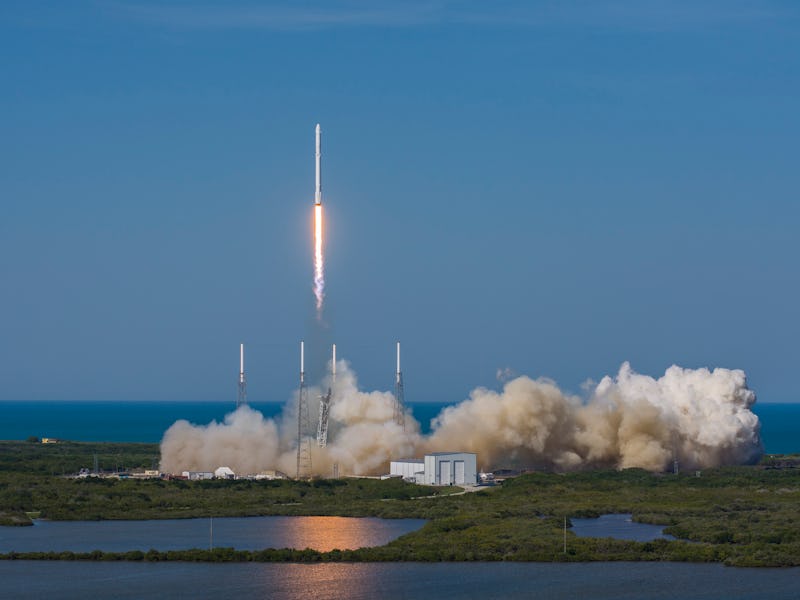Most of the time, bringing a deadly bacteria onto a closed space station is seen as a very, very bad idea — but that’s exactly what SpaceX is doing next Tuesday. Elon Musk’s rocket company is sending the lucky astronauts on the ISS a sample of methicillin-resistant staphylococcus aureus (or MRSA, if you don’t speak pathologist). The idea, fortunately, isn’t to give any of the brave cosmic explorers a locker-room infection from hell, but to study the effects of null or near-zero gravity on gene mutation and expression, in the hopes of finding a cure on Earth.
The study is co-sponsored by NASA and the Center for the Advancement of Science in Space (CASIS, if you don’t speak government), so the feds are well aware that there’s some nasty shit headed to the ISS. Lead researcher Dr. Anita Goel thinks that MRSA might mutate into new strains even faster in microgravity. That’s important to study, because MRSA is already mutating extremely fast on earth — so fast, in fact, that it’s starting to become an antibiotic-resistant superbug. If the bacteria mutate faster in microgravity, they could give doctors a look into the future of the disease, keeping physicians one step ahead of it on Earth.
“Our work in micorgravity on International Space Station is both very practical and fundamental,” Goel told Forbes. “We are pushing the envelope of personalized, precision medicine, enabling better prediction of drug resistance and hence smarter drugs. On a fundamental science level, I am keen to test my 20-year-old hypothesis that the environment can deeply influence the information flow from both the genome and transcriptome.”
Goel’s specialty is “nanobiophysics” — she studies how physics and nanotechnology can effect biology and medicine. The hope is that studying MRSA in space could lead to a breakthrough that would reduce doctors’ dependencies on typical antibiotics, which are becoming less and less effective against many bacterial infections, like the one that killed a woman in mid-January after shrugging off all 26 commonly used antibiotics in the U.S. As long as the MRSA strains don’t get loose on the ISS (they won’t, don’t worry), Goel’s research could tell us a lot about the microscopic enemies who may kill us all.
